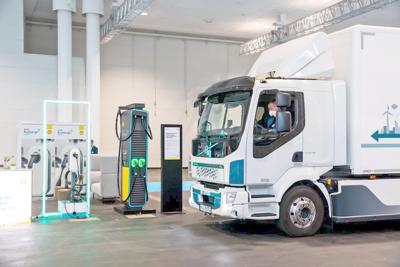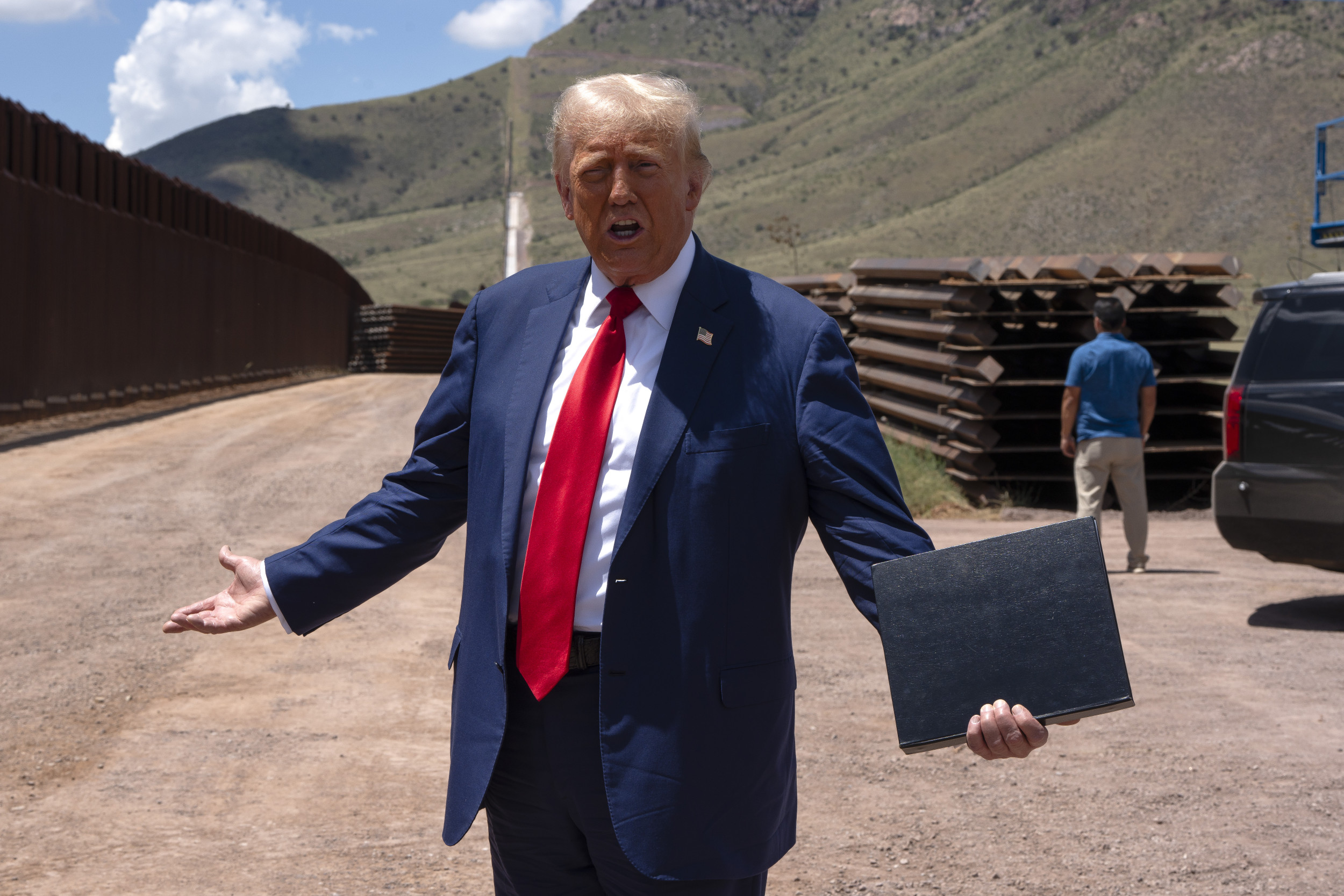Resistance Grows: Car Dealerships Oppose EV Mandate Requirements

Table of Contents
Financial Burden of EV Mandate Compliance
The transition to selling and servicing EVs presents a substantial financial hurdle for many dealerships. Meeting the requirements of the EV mandate demands significant upfront investments and potentially reduced profitability in the short term.
High Initial Investment Costs
Adapting to an EV-centric sales model requires dealerships to make substantial capital expenditures. These include:
- Upgrading facilities: Installing EV charging infrastructure, including fast chargers and adequate power supply, represents a considerable expense. This varies widely depending on the size of the dealership and the number of charging points needed.
- Specialized service equipment: EVs require specialized tools and equipment for diagnosis and repair, different from those used for traditional internal combustion engine (ICE) vehicles. This investment can be substantial.
- Technician training: Mechanics need specialized training to work on EVs, encompassing high-voltage safety procedures, battery management systems, and electric motor repair. The cost of training programs can be significant.
- Increased inventory costs: The higher purchase price of EVs compared to ICE vehicles means dealerships need to tie up more capital in inventory. The cost of parts, potentially more complex and expensive than for ICE vehicles, further increases this burden.
Reduced Profit Margins on EVs
Currently, the profit margins on EVs are often lower than on gasoline-powered vehicles. This is due to several factors:
- Lower sales volume: The current market share of EVs is still relatively small compared to ICE vehicles, meaning dealerships sell fewer EVs, impacting overall revenue.
- Higher purchase price for consumers: While EV prices are falling, they often remain higher than comparable ICE vehicles, potentially impacting consumer demand and limiting the number of sales.
- Increased servicing complexity: While EV servicing may be less frequent than ICE servicing, the complexity of the technology and the cost of specialized parts can lead to higher repair costs.
Lack of Government Support for Transition
Many dealerships feel that government support for the transition to EVs is insufficient. This lack of support includes:
- Limited funding for infrastructure upgrades: Grants and subsidies for installing EV charging stations are often inadequate to cover the total cost of upgrades.
- Insufficient consumer incentives: While some government rebates exist, they are often not enough to make EVs significantly more affordable for consumers, impacting demand.
- Lack of clear guidelines: The implementation of EV mandates often lacks clear guidelines and support programs for dealerships navigating this transition, leading to uncertainty and added challenges.
Challenges in EV Sales and Infrastructure
Beyond the financial burden, dealerships also face significant challenges in the practical aspects of selling and servicing EVs.
Consumer Demand and Education
Despite growing awareness, several barriers hinder widespread EV adoption:
- Range anxiety: Concerns about the driving range of EVs and the availability of charging stations remain a major hurdle for many potential buyers.
- Lack of consumer awareness: Many consumers remain uninformed about the benefits of EVs, including lower running costs and environmental advantages.
- Charging infrastructure limitations: The lack of readily available and convenient charging points is a critical barrier, especially in rural areas.
Limited EV Charging Infrastructure
The inadequate development of public EV charging infrastructure presents a significant challenge:
- Geographical disparities: The density of charging stations is highly uneven, with significant gaps in rural areas and along major highways.
- Reliability concerns: Existing charging stations sometimes experience outages or malfunctions, adding to consumer apprehension.
- Charging time: The relatively long charging times compared to refueling a gasoline car are another drawback that needs addressing.
Specialized Training and Technical Expertise
Servicing EVs requires specialized skills and equipment:
- High-voltage safety training: Mechanics need rigorous training to handle high-voltage systems safely and avoid risks.
- Specialized diagnostic tools: Sophisticated diagnostic tools are required to identify and address complex issues in EV systems.
- Ongoing training: The technology is constantly evolving, requiring ongoing training and upskilling for technicians.
Concerns About Government Overreach and Market Distortion
Dealerships also voice concerns about the overall approach and potential negative consequences of the EV mandates.
Unrealistic Sales Targets
Dealerships argue that some EV mandate targets are unrealistic given the current state of the market and consumer demand. They believe a more gradual transition would be more manageable and effective.
Lack of Market Readiness
Many feel that the market is not yet prepared for the rapid shift to EVs enforced by mandates, highlighting the need for a more phased approach. This relates to the infrastructure, consumer readiness and financial implications.
Potential for Market Distortion
The concern exists that the focus on EVs through mandates could lead to market distortions, potentially harming competition and limiting consumer choice in the broader automotive market.
Conclusion
The resistance to EV mandates from car dealerships underscores the considerable challenges involved in transitioning to an electric vehicle future. Financial burdens, infrastructure limitations, and concerns about government overreach are all significant factors. Addressing these concerns through substantial government support, comprehensive consumer education initiatives, and a more realistic and phased approach to implementation is essential for a smooth transition to a sustainable automotive industry. Ignoring the legitimate concerns of dealerships regarding the EV mandate could severely impede the overall success of the EV transition. Open dialogue and collaboration are crucial to finding effective solutions that facilitate the widespread adoption of EVs while ensuring the continued viability of the dealership network. Understanding the complexities of this transition, and working together towards a solution, is critical to the success of the EV mandate.

Featured Posts
-
 Carmen Joy Crookes New Single
May 24, 2025
Carmen Joy Crookes New Single
May 24, 2025 -
 Indian Wells Triumph Draper Secures Maiden Atp Masters 1000 Victory
May 24, 2025
Indian Wells Triumph Draper Secures Maiden Atp Masters 1000 Victory
May 24, 2025 -
 How 17 Famous Stars Ruined Their Reputations
May 24, 2025
How 17 Famous Stars Ruined Their Reputations
May 24, 2025 -
 Annie Kilners Posts Following Kyle Walker Night Out Allegations Of Poisoning Men
May 24, 2025
Annie Kilners Posts Following Kyle Walker Night Out Allegations Of Poisoning Men
May 24, 2025 -
 Mia Farrows Plea Imprison Trump For Venezuelan Deportation Policy
May 24, 2025
Mia Farrows Plea Imprison Trump For Venezuelan Deportation Policy
May 24, 2025
Latest Posts
-
 Broadways Best Jonathan Groffs Just In Time Opening Night Success
May 24, 2025
Broadways Best Jonathan Groffs Just In Time Opening Night Success
May 24, 2025 -
 Jonathan Groffs Just In Time Opening Lea Michele And Castmates Celebrate
May 24, 2025
Jonathan Groffs Just In Time Opening Lea Michele And Castmates Celebrate
May 24, 2025 -
 Jonathan Groffs Broadway Opening Lea Michele And Friends Offer Support
May 24, 2025
Jonathan Groffs Broadway Opening Lea Michele And Friends Offer Support
May 24, 2025 -
 Jonathan Groffs Just In Time A Night Of Support From Famous Friends
May 24, 2025
Jonathan Groffs Just In Time A Night Of Support From Famous Friends
May 24, 2025 -
 Jonathan Groffs Show Name Opening Photos And Star Sightings
May 24, 2025
Jonathan Groffs Show Name Opening Photos And Star Sightings
May 24, 2025
